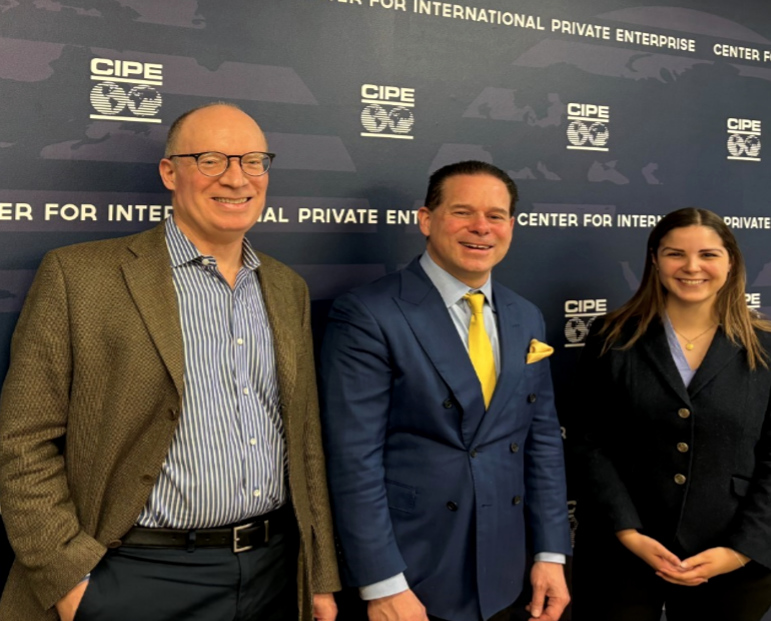
One of the main authors of the groundbreaking Foreign Extortion Prevention Act (FEPA), Tom Firestone, underscored earlier this month at a CIPE briefing that the newlaw’s effectiveness in curbing bribery solicitation will depend on boosting awareness.
“I think that the most valuable thing an organization like CIPE can do is to just get the word out – consciousness raising – because the more foreign governments are aware of this, the less likely they are to demand a bribe,” said Firestone, a partner at the Washington, D.C. law firm Squire Patton Boggs. “The more companies are aware of this, the more likely they are to educate their employees on how to resist bribe demands.”
The law criminalizes the act of foreign officials demanding or accepting bribes from U.S. businesses and citizens and can shield American companies and their officials from bribe seekers. Not only are such foreign officials vulnerable to the law, but anyone acting on their behalf, even informally, could also be subject to prosecution. The law applies to American companies as well as foreign businesses listed on a U.S. stock exchange. Not since the passage of the U.S. Foreign Corrupt Practices Act (FCPA) of 1977, which broadly prohibits the paying of bribes to foreign officials, has there been such interest within the anti-corruption community in a piece of legislation.
CIPE Can Meet Demand for Knowledge on FEPA
Building on the role that Firestone outlined, CIPE can leverage its connections with the private sector and civil society, as well as its expertise in matters of anti-corruption efforts, to serve as a credible source of information on what FEPA does and does not do. CIPE currently operates projects in 84 countries and is a potential resource for organizations and individuals who want to understand FEPA. The organization can highlight the potentially dire consequences of violating the law, help to prevent efforts to extort businesses, reduce instances of corruption, and improve business environments. In one early example, CIPE’s Anti-Corruption & Governance Center hosted an information session in Jakarta, Indonesia, in early 2024. At that session, companies zeroed in on the potential of FEPA to curb the appetite of officials demanding bribes – including those officials with state-owned enterprises.
“We will have FEPA cases in the near future.”
A common question asked about the law is who will enforce it, and how? The Fraud Section of the Department of Justice (DOJ) will enforce FEPA, Firestone said. That unit has significant experience in enforcing the FCPA. “DOJ has a lot of experience and information built up over all these years from the FCPA cases, so they clearly know who the targets are,” said Firestone. “I absolutely think that we will have FEPA cases in the near future.” In addition, under the law, DOJ is required to report to the U.S. Congress about its efforts to enforce the law and what tools are needed. CIPE is also well positioned to offer insights on enforcement.
CIPE will continue to explore opportunities to be a resource for the private sector and others working toward a more transparent and healthy business environment.
Published Date: May 03, 2024
